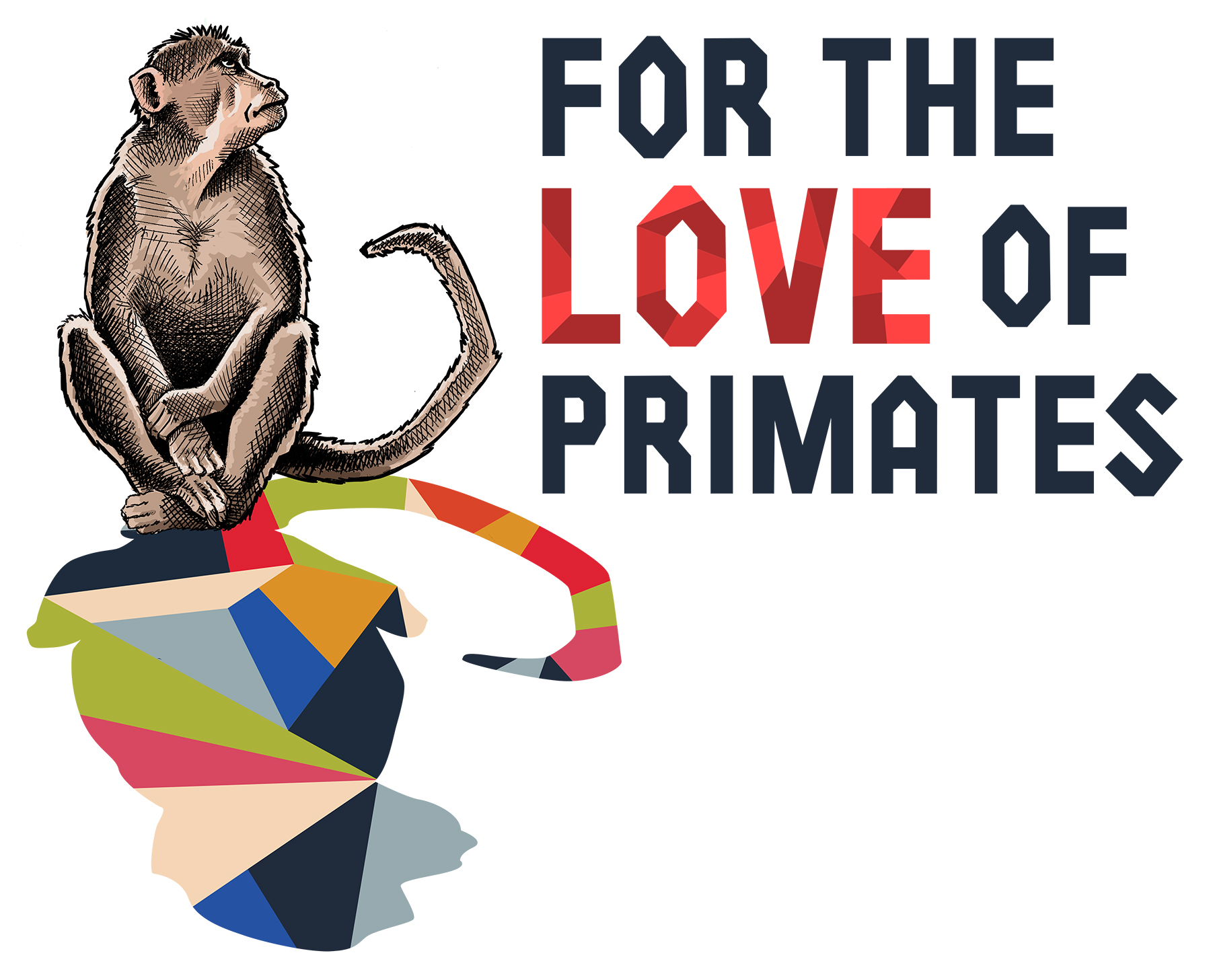How to Get a Job Working with Primates
How to Get a Job Working with Primates
Written by Mia Price
Do you love animals in general and primates in particular? Does working with the primates closely and looking out for their well-being sound appealing to you? If the answer is a resounding yes, you would likely do well pursuing a career in a primatology-related field. Below, For The Love Of Primates offers a mini-guide detailing everything you need to know about getting a job in primatology:
What kind of primate jobs are there?
Primatology is a broad, multi-disciplinary field that involves practical fieldwork as well as abstract research. As such, jobs in this industry can and do vary widely. We cover popular positions here:
● Primate caretaker: A primate caretaker is someone who takes care of a primate’s basic needs like food, shelter, and companionship. They work in zoos, sanctuaries, research labs, and similar. You don’t always need an advanced degree for this job, but most require a bachelor’s degree in Biology, Zoology, or a related field. Chron offers more details here.
● Primatologist: This is arguably the most in-demand job profile in primatology. Primatologists are scientists who specialize in the study of primates. Their primary job duties revolve around conservation, research, and education. This job requires a degree.
● Specialization jobs: Specialization jobs are advanced roles in niches like behavior, genetics, reproduction, veterinary medicine, teaching, and similar. You typically need an advanced degree and relevant experience to land these roles.
● Various jobs: As mentioned earlier, primatology is a broad field. You can find jobs related to teaching, editing, writing, tourism, technical, paleontology, psychology, and even computers.
What kind of education do you need to work with primates?
The education you need depends on the job at hand and your preferred career path. Here is what you can expect:
● The basics: It’s recommended you have a basic understanding of biology – and especially evolutionary biology. Some knowledge of zoology and anthropology is good to have. Some must-have skills include basic computer literacy, communication, critical thinking, observation, and problem-solving. The University of Wisconsin-Madison offers an international reference directory of primatology education programs.
● A degree: Having a degree (or taking classes) in zoology, biology, anthropology, psychology, conservation science, animal behavior, and similar is a prerequisite for specialization roles in this field.
● Field school: A field school is an institution providing education in field research methods. Attending one can help you gain practical experience and build up your background.
Can you work with primates without an education?
The short answer is yes. A degree is not a prerequisite to working with primates or in many non-specialization roles in this field. If you have experience working with primates, for example, you can leverage that into landing a job. You can also find internships, volunteer work, and training programs that groom you for jobs. Taking classes or pursuing programs (including distance education) later will help your career.
How to find a job in primatology-related niches
Finding a job in primatology can take some doing. The competition is stiff and opportunities few – expect to have to work hard and persevere to get a foot in the door. We offer some suggestions for finding a job:
● Volunteering or internships: Becoming a volunteer or an intern in a primate-related institution gives you hands-on skills, helps you connect with important people, and also underscores your commitment to getting a job in this field.
● Joining professional organizations: Joining professional organizations such as the International Primatological Society (IPS), International Primate Protection League, the Great Ape Project, and similar regional (or international) institutions can help you find jobs, network, and access educational resources.
● The conventional route: You could find a job in primatology just like you would any other job – by networking, scouring job platforms or relevant primate-related organizations for open jobs, writing a strong resume and cover letter, and interviewing well.
Don’t forget to tick some other important boxes
Getting a job working with primates requires more than education, networking, and skills – you also need emotional maturity, empathy, mental resilience, and a strong sense of ethics. The work can be challenging – make sure you know what you’re getting into. Most professionals in this field care deeply about primates. Demonstrating your passion, commitment, and dedication toward primates will help you secure trust from employers and colleagues.
Forming connections with people in this space is key
If there’s one thing you should focus on, it’s networking. Forming connections with people in this space can help you gain insight into the industry, find jobs, be mentored, and just be supported. You can attend seminars or workshops; pursue courses; or simply engage with people working in primatology. LinkedIn is an excellent place to make connections. It’s convenient, transparent, and allows you to connect with people worldwide. Note that there are right and wrong ways to network on this platform.
Volunteer with For The Love Of Primates
For The Love Of Primates offers several volunteering opportunities in Ohio and elsewhere. We’re a nonprofit focused on creating a sanctuary for animals retired from research, used in the entertainment industry, or kept as pets. Participating can help you gain industry insight, pick up critical skills and practical experience, and make useful connections.
Conclusion
You’ll need some minimum education, experience, and skills to qualify for a job working with primates. Networking can make it easier to find work, as can volunteering. Expect some stiff competition, regardless of your background or where you apply. Being committed and persevering will help you both find a job and be successful in your role.
Image via Unsplash

